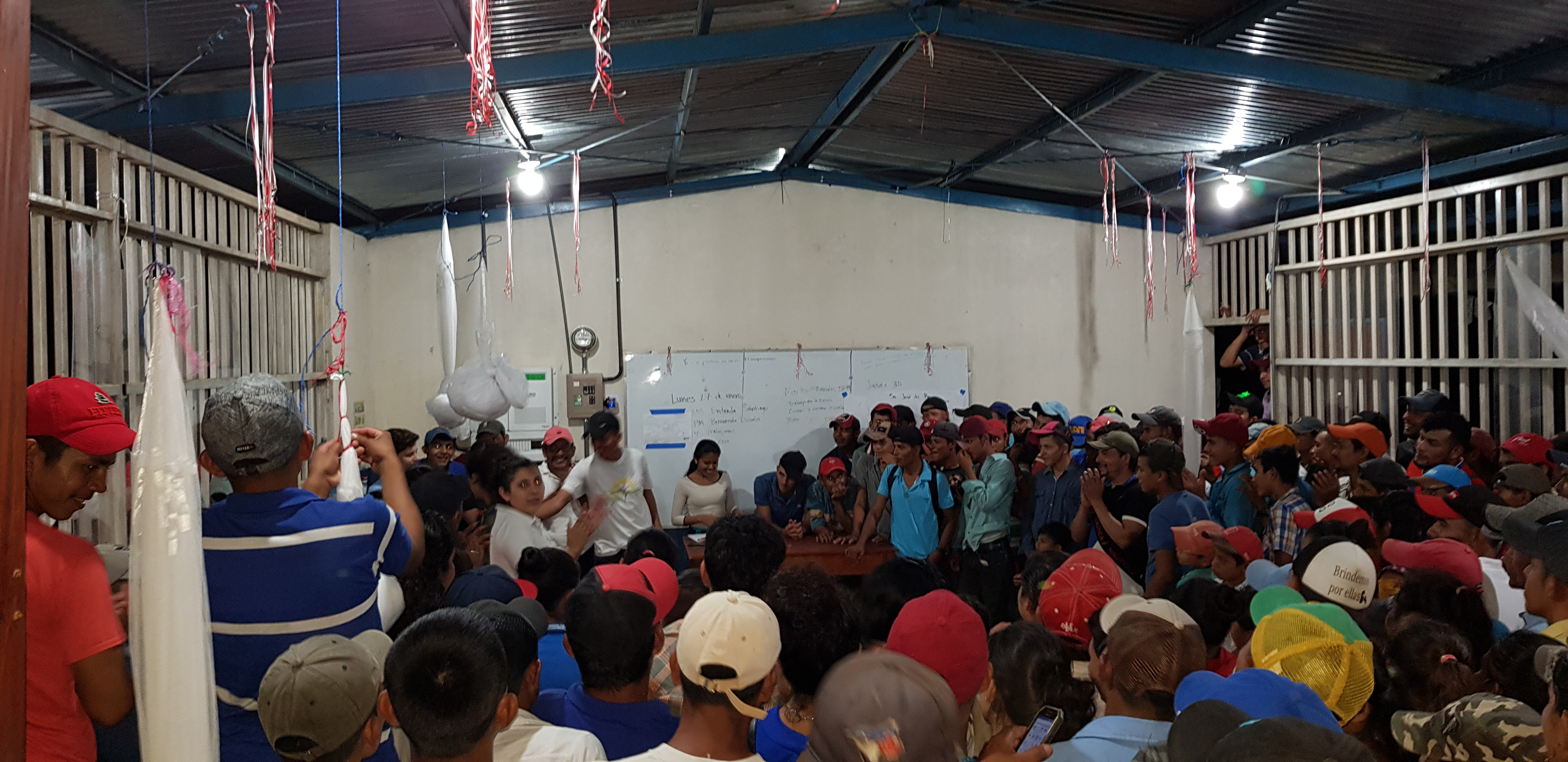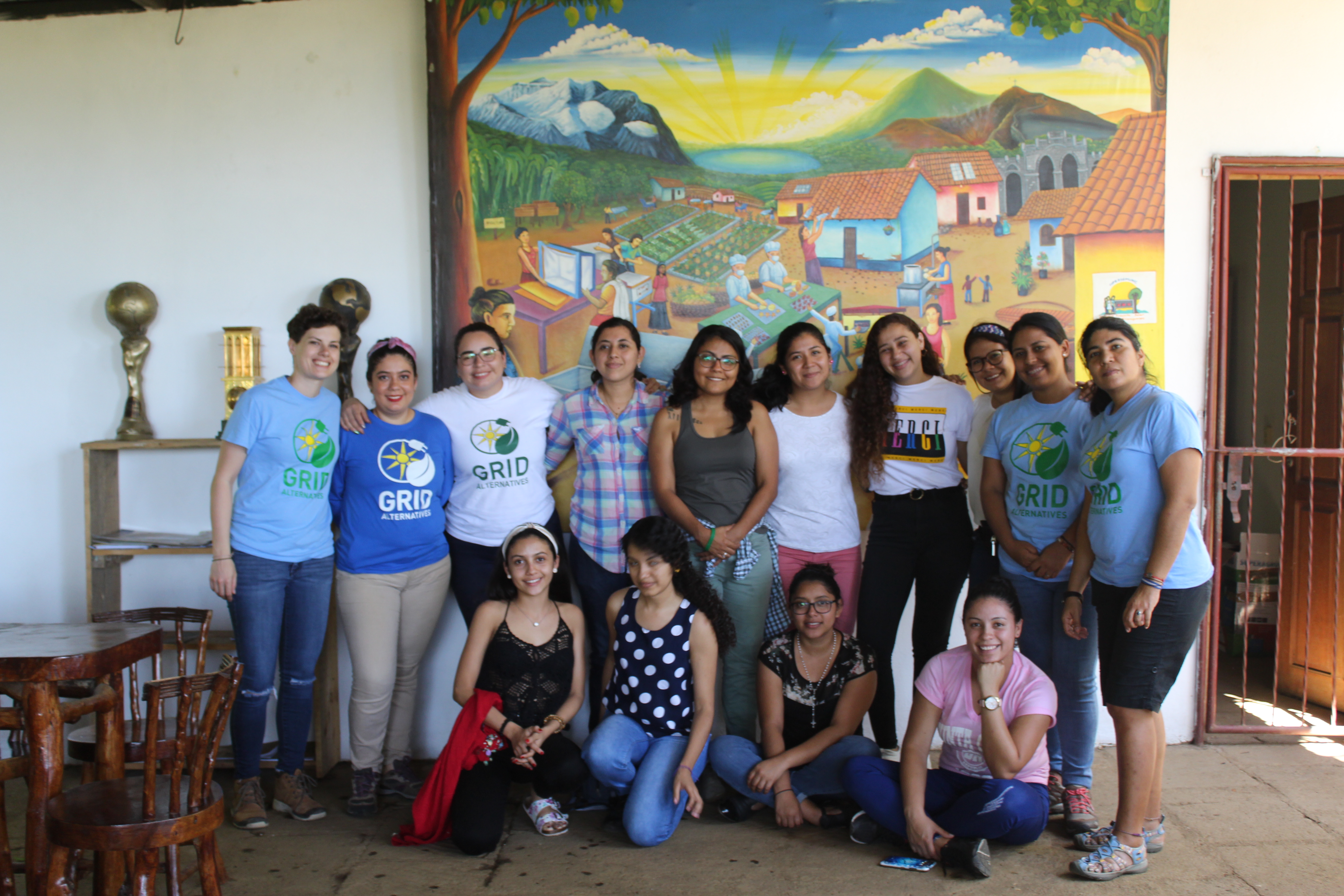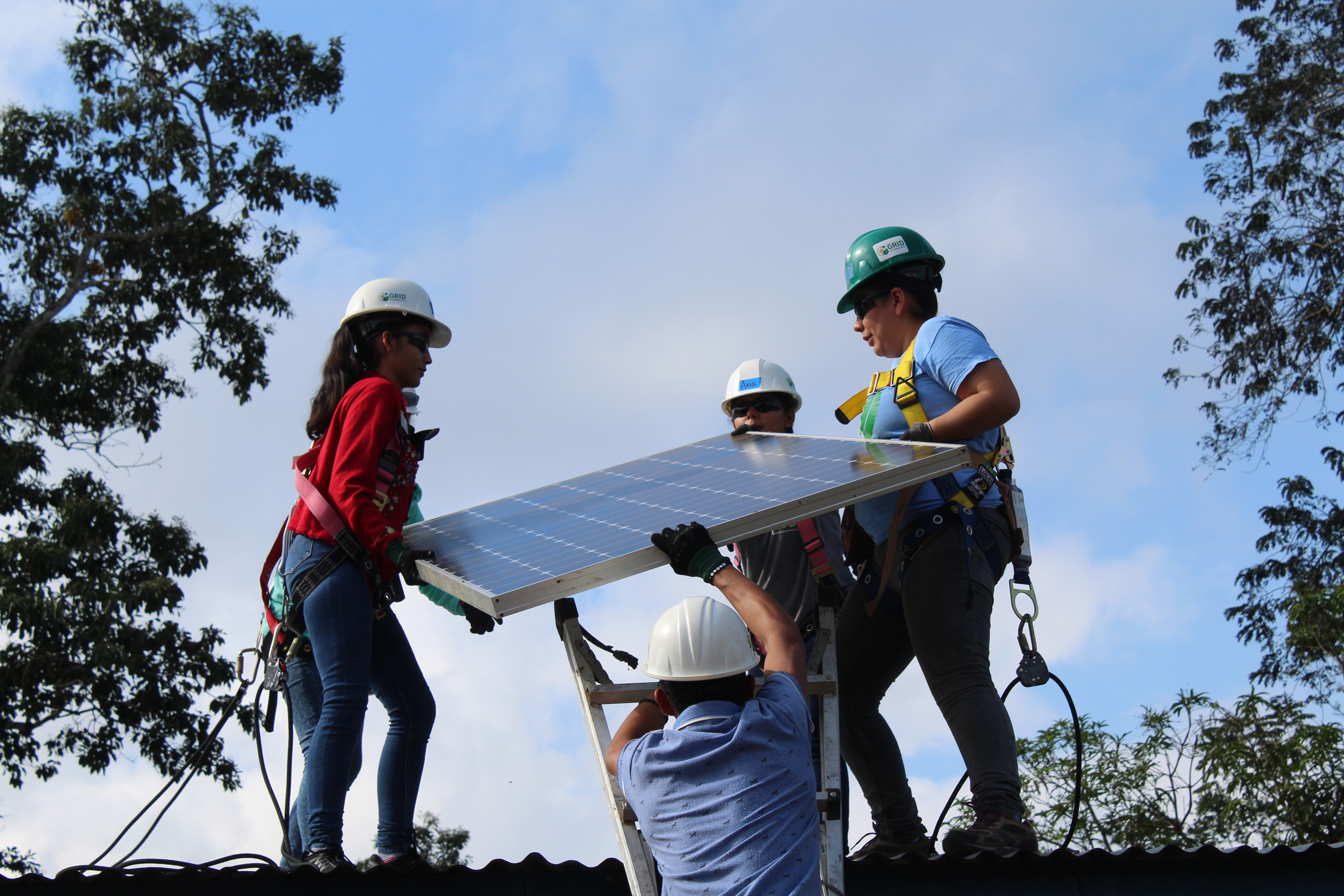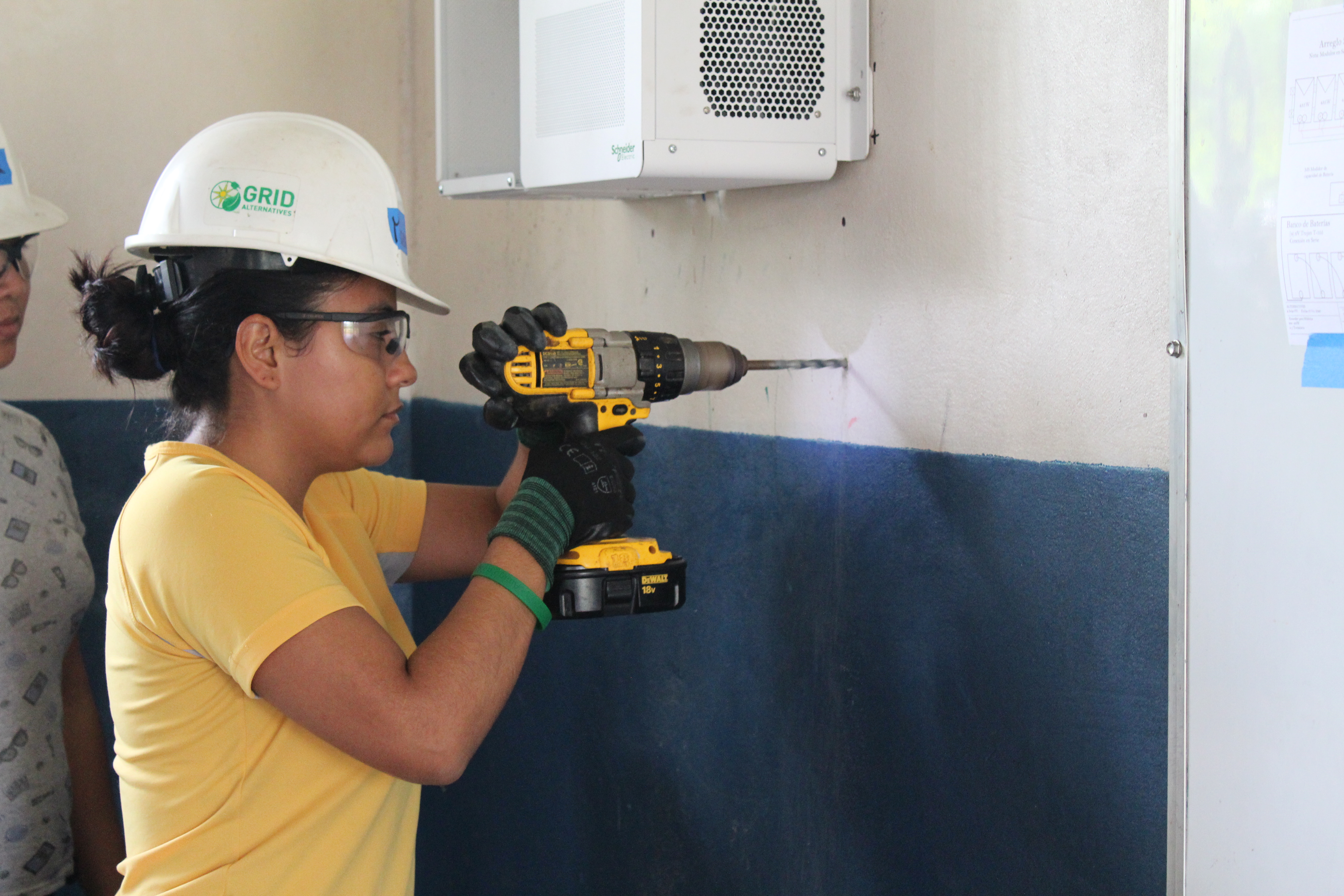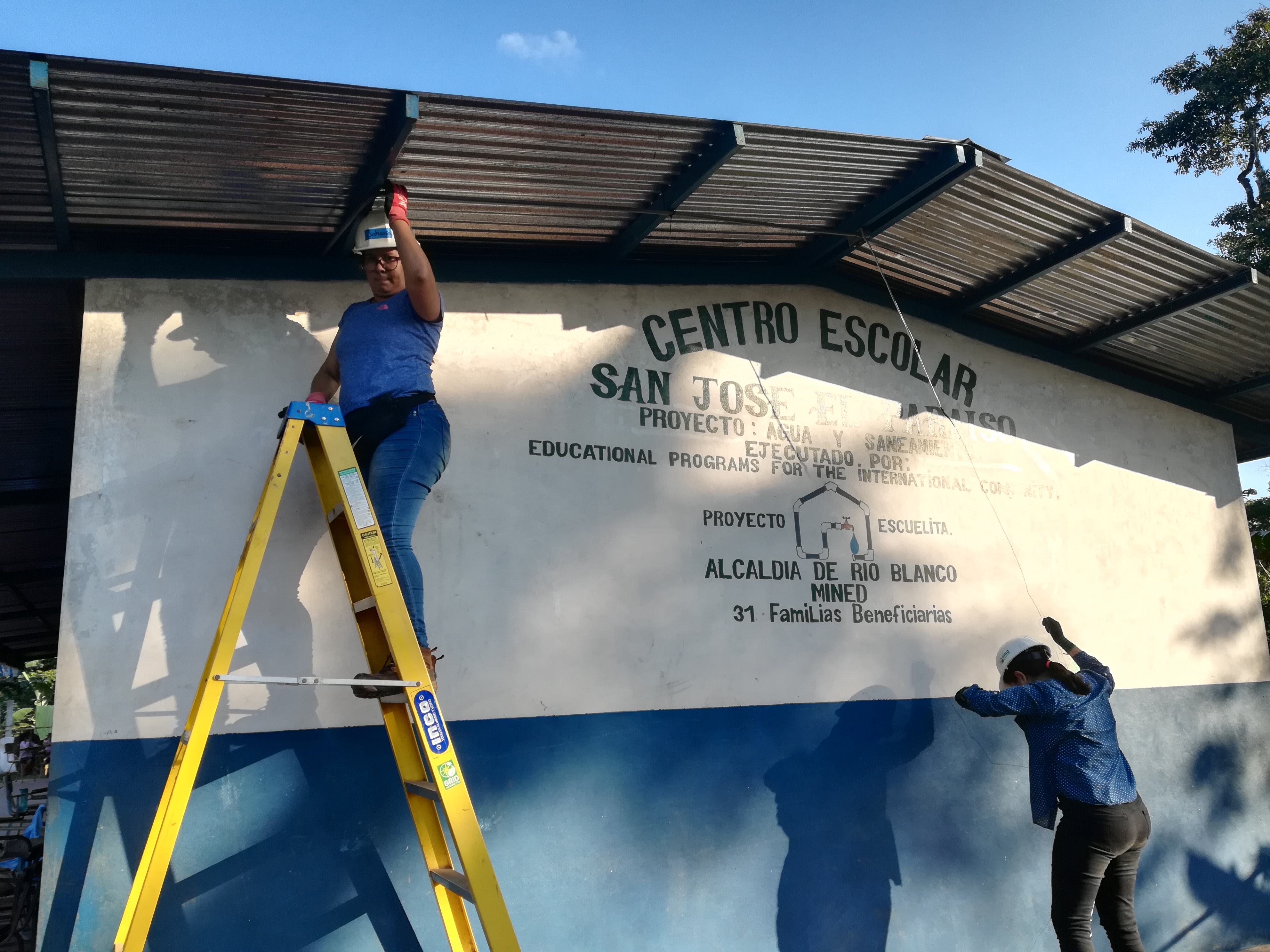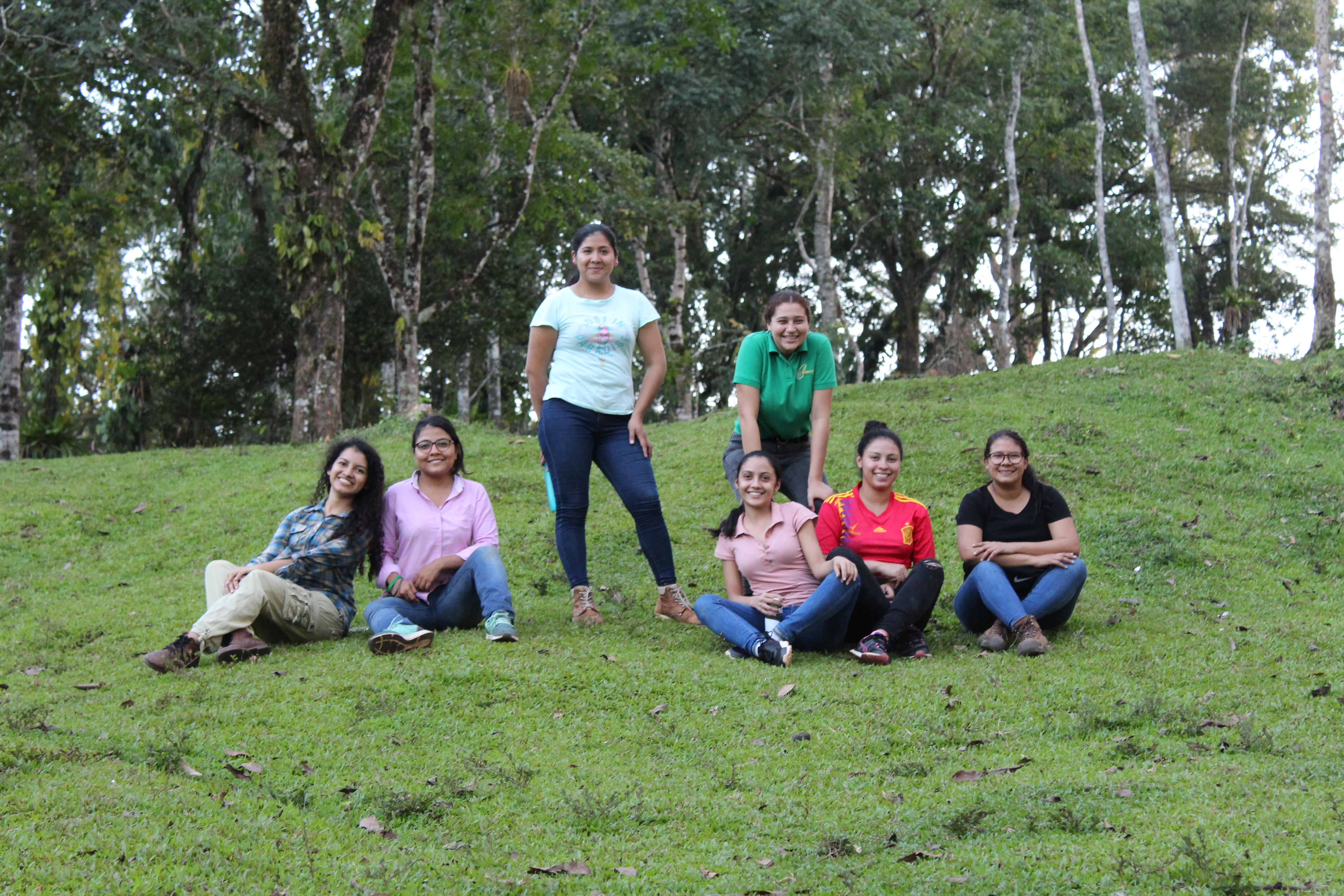Background
San José el Paraíso is a remote community located in the municipality of Rio Blanco in Nicaragua, situated along the border of the department of Matagalpa and the northern Caribbean coast, about 300 km from the capital city, Managua. Locals call the community El Paraíso (“The Paradise”) and it is home to approximately 200 people, many of whom are dedicated solely to agricultural work. Though El Paraíso boasts undeniably beautiful landscapes and an abundance of diverse flora and fauna, the advancement of the agricultural frontier constantly threatens the community’s unique assets. Access to this community is already difficult throughout the year and intensifies in the winter months due to the fact that there are no bridges to cross the rivers, which swell in the colder months and block access to roads. The only way to get to the community is by foot or horse, due to the lack of vehicular access.
In terms of electricity, though the Nicaragua national electric grid is just a few kilometers from the entrance of San José El Paraíso, due to the distance between each house and the cost to connect each house to the grid, homes in El Paraísodo not have access to electricity from the grid.
GRID Alternatives (GRID) arrived in San José El Paraíso through "Proyecto Escuelita," a nonprofit organization dedicated to constructing schools and providing drinking water and sanitation systems in the communities of Rio Blanco. Proyecto Escuelita worked hand in hand with the municipal government and built a 2-room school for the San José El Paraíso community, including a dining room and a kitchen. Children attend the school from preschool to sixth grade. For high school, students must study in the community of Cuatro Esquinas, which is approximately 4 km from San José El Paraíso. Proyecto Escuelita and the municipal government also provides the community's drinking water and latrine system. The community's experience working with another nonprofit organization made it easier to work with GRID since they had already identified the needs of the community.
The Project
GRID began working with the community of San José El Paraíso in 2017. When GRID met with community members, they requested electricity at the community school.
GRID faced a significant three-year delay, primarily attributed to the confluence of two significant challenges: the Nicaraguan social crisis in 2018 and the global COVID-19 pandemic. During this period, we encountered numerous hurdles and setbacks as we navigated Nicaragua's socio-political unrest. When COVID-19 reached Nicaragua, GRID suspended projects for the safety of the community and our team as the country faced unprecedented challenges. Despite these formidable obstacles, GRID stayed in touch with the community of San Jose El Paraiso and prioritized the solar project when operations resumed. We are proud to say that our ability to persevere during these unprecedented times demonstrates our resilience, adaptability, and commitment to sustainable energy solutions.
In January 2020, GRID and an all-female cohort of local Nicaraguan trainees, as part of GRID's Women in Solar (Mujeres del Sol) initiative, installed a 1.7kW solar electric system on the school's roof. During the week-long installation, 10 Nicaraguan women from different professions and origins, worked alongside GRID staff and community members to install the solar system. The system brought reliable and clean electricity to the community school for the first time. Community members provided lodging, food, and support during the installation and helped the team enter and leave the community, lending horses and guiding the team on the remote path.
GRID’s model is unique because our local staff stay connected to the projects we install, providing troubleshooting and maintenance visits at least once a year. Shortly after the solar installation, the COVID-19 pandemic arrived and the community members took over the maintenance of the system when GRID could not visit. GRID provided troubleshooting support via phone calls to community members to resolve problems remotely. Residents of San Jose El Paraiso started a small business during this time selling sodas and fruit juices which earned an income to support the solar system maintenance costs, including purchasing replacement solar batteries and income to the woman who manages it. The business also created a community mutual aid fund where residents can borrow money locally.
Installing a PV (photovoltaic) system in San José El Paraíso's school and small business has positively impacted the students and the wider community. Reliable access to electricity has transformed education, providing reliable electricity for well-lit environments conducive to effective learning, food prepping, community charging needs, and community self-sufficiency. Beyond the practical benefits, the PV system is an educational tool, allowing teachers to impart valuable lessons about renewable energy, sustainability, and environmental conservation, raising awareness of critical global issues among students and the community.
The Results:
The community reported the following impacts three years after the 2020 solar installation.
- A reliable electricity supply through the PV system ensures that classrooms are well-lit, creating an optimal environment for learning.
- A PV system in the school serves as an educational tool. Teachers can use it to teach students about renewable energy, sustainability, and environmental conservation, fostering an understanding of important global issues.
- The PV system in San José El Paraíso’s school benefits the wider community. This school often serves as a community hub, and access to electricity is utilized for adult education programs, community meetings, and other events, further enriching the lives of students and community members.
- Before installing the PV system in the school, community members walked four kilometers to Cuatro Esquinas to charge their cell phones. Being able to charge cell phones in the community has saved residents time and money, helped them stay in better touch with family and friends outside the community, and provided radio and internet access.
- The community started a small business selling sodas and fruit juice, which generates approximately C$10,000 per month. This income supports the maintenance of the solar system by creating a fund to purchase replacement batteries while providing income to the woman managing the business.
- Through the development of the energy committee, three community leadership positions were created due to this project. The leaders are in charge of ongoing collaboration with GRID, PV system maintenance, and fundraising for battery replacements.
- Two representatives from San José El Paraíso, one man and one woman, participated in GRID’s Annual Solar Conference. The conference provides PV workshops and training to community members from GRID installation sites across Nicaragua. It is a rare opportunity for people from rural villages to travel outside their region and meet other community leaders, sharing ideas about fundraising and bringing new projects to their community.
- The community has increased knowledge of solar and renewable energy, and a growing number of members have direct installation and maintenance experience.
Solar System Specs:
4 SunPower 435W solar modules
1 Schneider XW MPPT 60A charge controller.
1 Schneider Conext SW 2524 inverter
4 6V, 225ah Trojan T-batteries
Total Project Cost: $6,000
In-kind solar equipment donations allowed GRID to bring solar to the San José El Paraíso school for a low cost.
What is there left to do?
While the school's solar system charges lamps, light bulbs, and other small electrical appliances, families still depend on kerosene lamps, batteries, and fire lights for nighttime visibility in their homes. Dependability on costly, inefficient, and unreliable energy sources creates many problems. Families use hazardous, flammable products in their homes and require time and resources to make the long trip to town to purchase kerosene and batteries for their lighting appliances, which must be replaced regularly. Residents of San Jose El Paraiso have asked GRID to bring solar home systems to the community.
To make a donation to GRID Alternatives in support of our work in Nicaragua, please click here.
